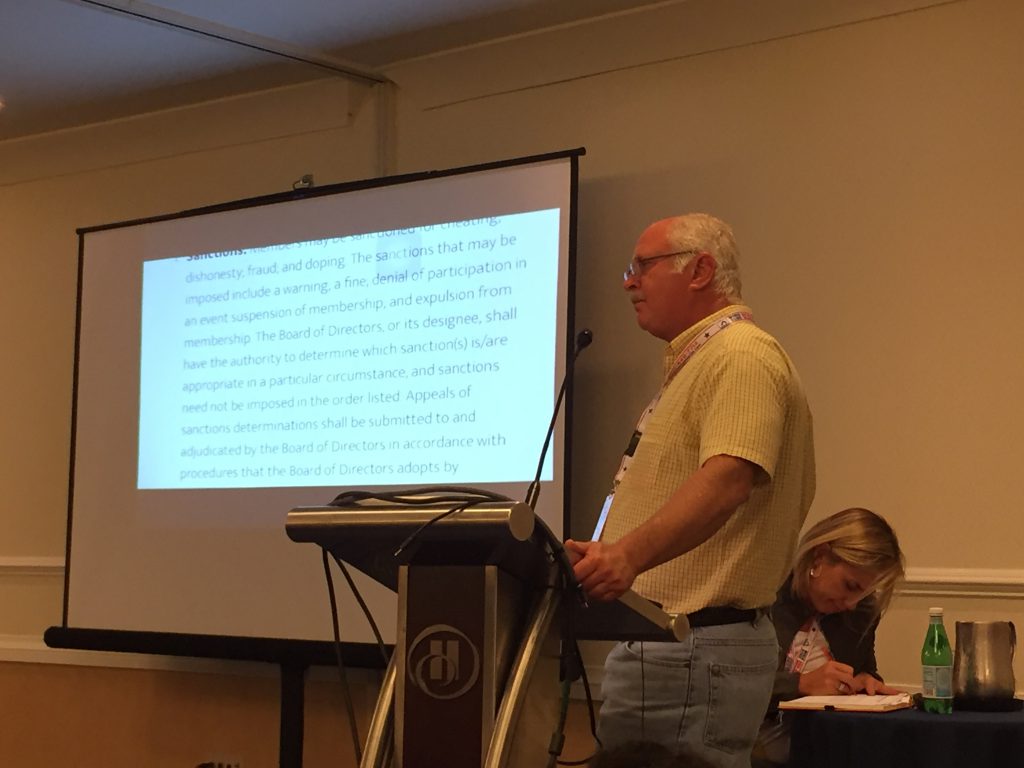World Swimming Association Constitution Ratified in Washington

A group of coaches and other swimming officials met Friday afternoon in Washington to approve the initial Constitution for the World Swimming Association (WSA). Coach George Block, the President of the World Swimming Coaches Association, presided over the meeting.
The Constitution outlined six primary guidelines as the WSA’s objectives, with the group present agreeing that “putting swimmers” first would be first and foremost.
Other key tenants included: drug-free sports; hosting swimming competitions on all levels; promoting competition in pool and open water swimming without discrimination on the basis of race, gender, etc.; coaches’ education and advocating swimming for its health and fitness benefits.
The organization has already been incorporated in Florida. Other regulations included in the constitution included:
- Every rule and bylaw must fall into line with Constitution.
- Establishing categories of membership.
- There will be sanctions for cheating, dishonesty, fraud and doping, and those sanctions can include a warning, fine, suspension and/or expulsion from WSA.
- A Quadrennial Congress will meet in summer post-Olympics to develop new four-year plans.
- WSCA will select the WSA Board of Directors, which will meet at least once per year.
A large chunk of the constitution discussion centered on how finances should figure into the WSA constitution. ASCA Executive Director John Leonard argued that too much focus on money brings about corruption, while Fitter and Faster director David Arluck spoke up, insisting that providing financial opportunities for professional athletes had to be central to the new WSA.
Eventually, a short section on professional opportunities was included in Article II of the constitution, indicating that the WSA would put on events designed to benefit professionals, just as it would put on events geared towards developmental swimmers.
Block and Leonard outlined that the organization aims to become a parallel organization to FINA, one providing more opportunities to swimmers of all ability levels. As for political power, Leonard emphatically pointed out that it would only take high-profile swimmers speaking out to force political change.
The final debate involved the amendment process for the Constitution, with most arguing to make the process as difficult as possible to discourage change. It was settled that approving an amendment would require the majority vote of three out of four boards affiliated with WSA as well as 75 percent of the voting membership.
The full WSA Constitution can be found by clicking here. The updated, ratified version will be posted shortly.



